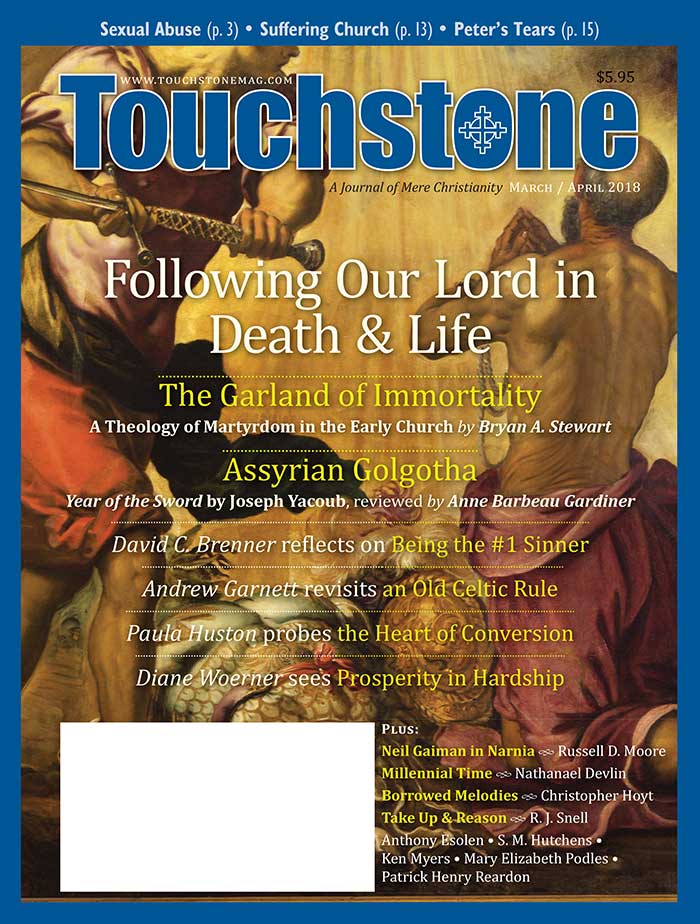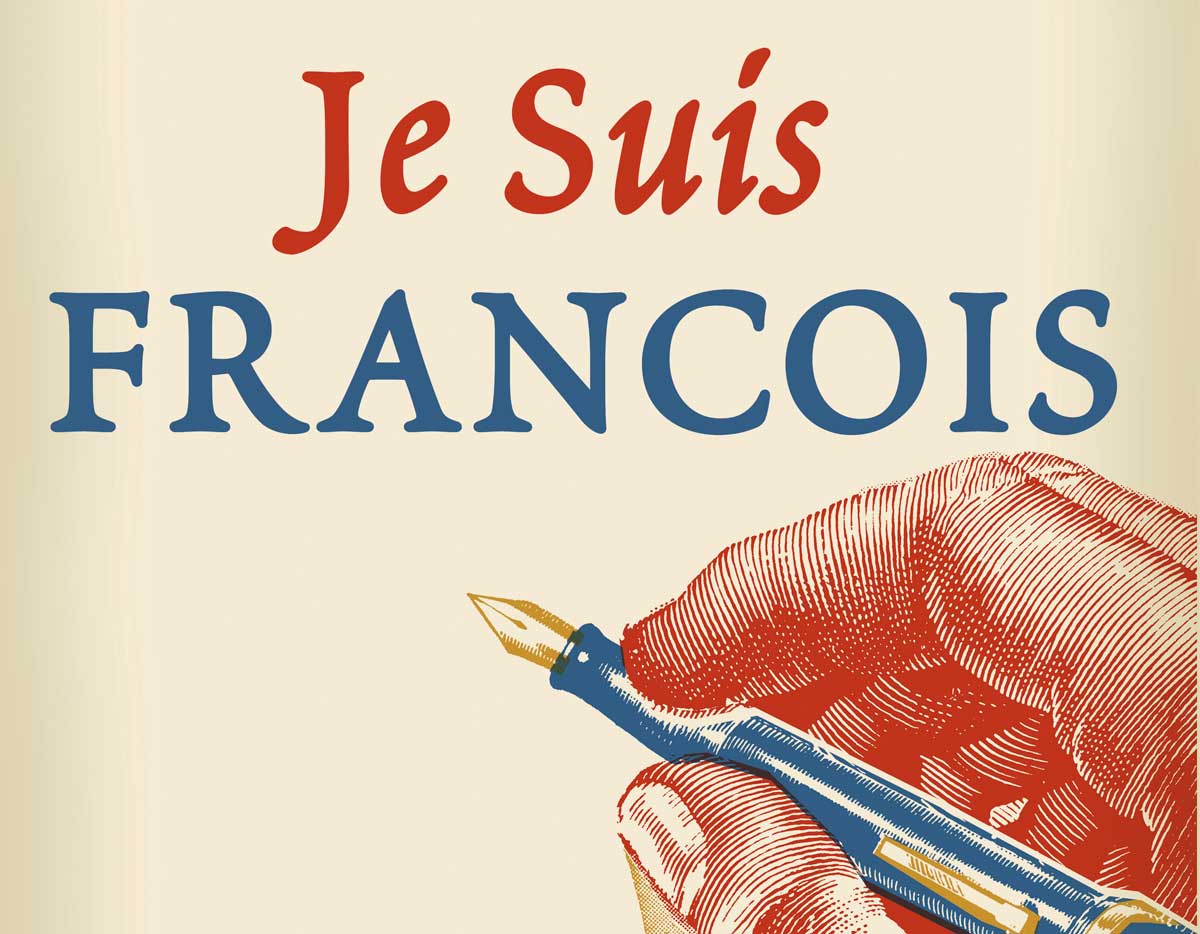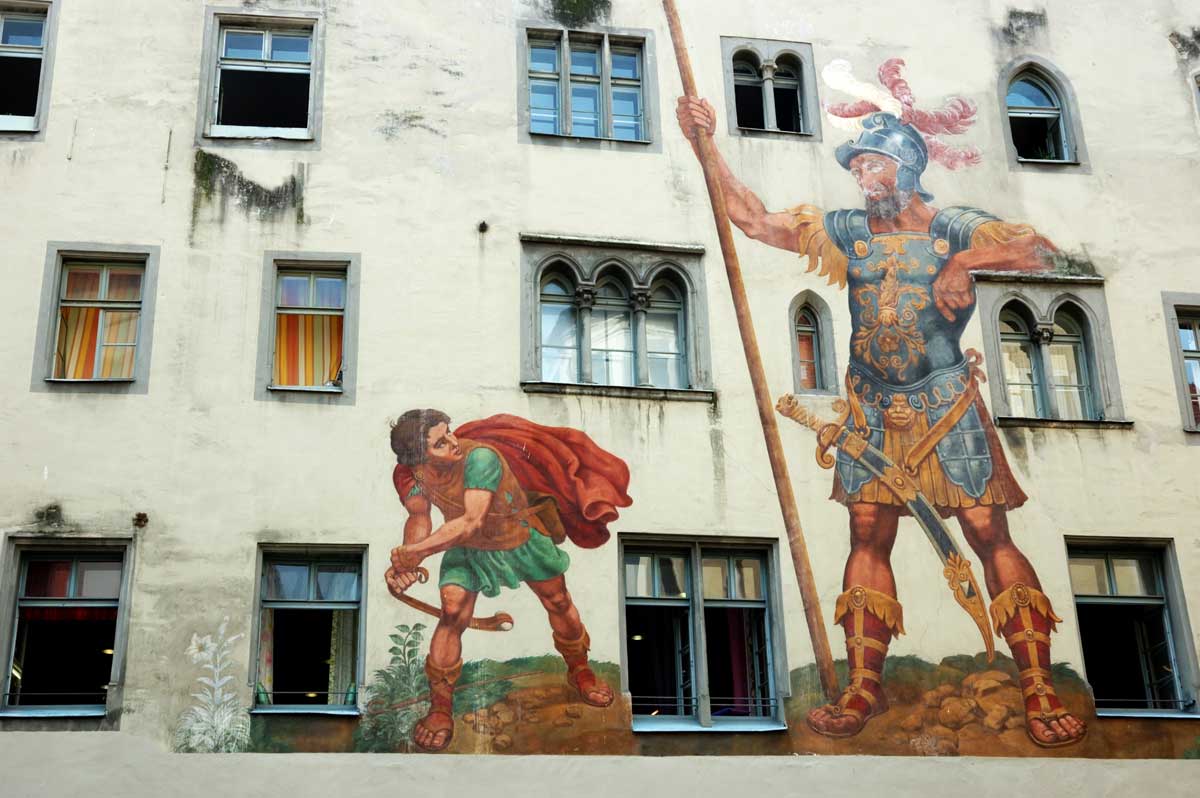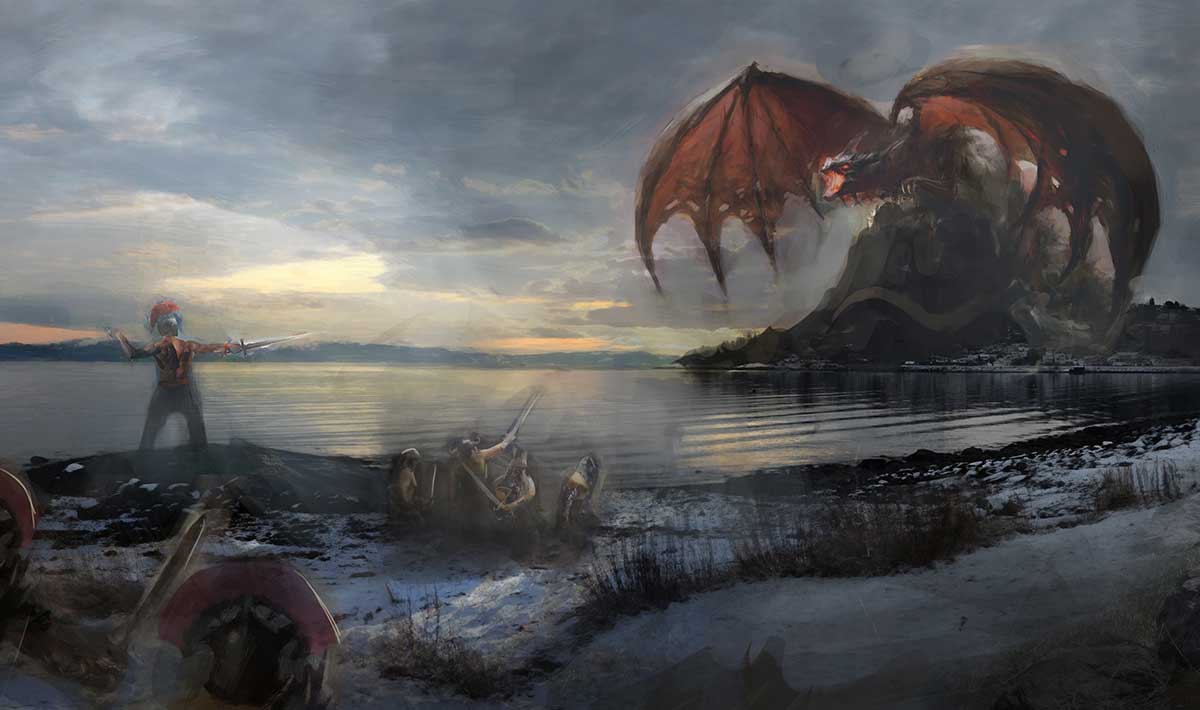Feature
Reason Takes Up Arms
How Best to Face the Total War of the Anti-Culture
by R. J. Snell
It was almost twenty years ago when I first walked into a university classroom as a teacher rather than a student. Barely older than most of the students, and younger than some, my exhilaration was matched only by my terror, for I knew my ignorance and expected the students would soon recognize it as well.
My walk to that first classroom reinforced the mood, taking me past an imposing statue of St. Michael overpowering Lucifer, his sword arm poised to deliver a blow, as Lucifer’s tail, with the head of a snake, struck at Michael’s leg. Michael’s tensed muscles and Lucifer’s snarling face conveyed the drama of rebellion, violence, and the destruction of order.
As I then imagined it, the classroom was no less dramatic, with truth and error, goodness and evil, beauty and ugliness striving to govern hearts and minds. I had a serious obligation, a calling, and much depended on how I comported myself, what answers I had, what texts I chose. That first entrance was momentous, at least for me; I suspect the students wondered what was going on with the jittery lecturer reading aloud the usual dull syllabus.
Two decades later, with many dozens of classes and several thousand students behind me, and having trudged through thousands upon thousands of student essays, I still feel, although much less intensely, that mixture of exhilaration and terror upon entering a classroom. Here is another chance to confront an intellect in its formation, to introduce someone to Plato or Aquinas or P. G. Wodehouse.
Playing the Long Game
Yet I quickly learned that teaching is not best imagined as a battle. Since they are persons, valuable in their own right, students are not spoils or conquests, and I’ve come to distrust teachers who seek disciples or who think of teaching as a political act. Such teachers politicize the texts, pervert free inquiry, reduce ideas to propaganda, and generally act like ideologues and self-appointed prophets. Perhaps worse, they destroy the books, treating even the best texts of our heritage as fodder in the endless race-gender-class routine, never allowing the books to speak for themselves, let alone staying out of the way so students can experience beauty, wonder, piety, and gratitude. Such teachers are illiberal, whatever their professed political leanings, and I have resisted imitating their sins, even for my own (and better) causes. If they were going to indoctrinate, I would not.
I tried to be irenic, that is, to facilitate students’ questions rather than my own, to let books speak for themselves, and to count it a success if students did not know my opinions on the political issues of the day. All of this made sense because of a commitment to the “long game,” the sense that truth would out itself, would make itself known to any student of good will. Consequently, it was more important to teach students to question and ponder, to think and read, and to honestly explore and argue than to arrive at prescribed answers, for in doing the former they were likely to discover the truth in a way that would affix it deeply into their souls.
The long game quite often entailed a willingness to wait, even to allow students to flail about in temporary confusion, for so long as they sincerely sought to know, the odds were good that they would make progress while becoming more honest, more engaged, and more virtuous learners and persons.
Even when things looked grim, either as a particular student seemed committed to what I took to be error, or as the culture of the university seemed to grow ever more hostile, my irenicism convinced me to foster shared inquiry and friendship, and to follow out the arguments. The early Platonic dialogues are powerful models of this, with Socrates insisting that he does not know and has nothing to teach, all the while modeling through word and deed a fundamental commitment to humble inquiry. Socratic conversation, both in the Platonic dialogues and in my classroom, resulted in genuine intellectual conversions.
Thrasymachus, Callicles, Alcibiades, Meletus, Gorgias, Phaedrus, Agathon, and Polus each encountered Socrates as a principle of order, a sign of contradiction, a call to another, better form of life. Some converted to this form quickly, others more slowly, and still others were so entrenched in their disordered passions that they could not be reached, but all confronted the possibility of living the truth in a more honest, powerful, and effective way than any counter-indoctrination could have accomplished. This was particularly evident in the most diseased of minds, those for whom argument was mostly useless but who needed a more fundamental conversion of love and life.
R. J. Snell is currently a visiting lecturer at Princeton University, and he directs the Center on the University and Intellectual Life for the Witherspoon Institute. Prior to that appointment he was Professor of Philosophy at Eastern University and the Templeton Honors College. His most recent book is Acedia and Its Discontents: Metaphysical Boredom in an Empire of Desire (Angelico Press, 2015).
subscription options
Order
Print/Online Subscription

Get six issues (one year) of Touchstone PLUS full online access including pdf downloads for only $39.95. That's only $3.34 per month!
Order
Online Only
Subscription

Get a one-year full-access subscription to the Touchstone online archives for only $19.95. That's only $1.66 per month!
bulk subscriptions
Order Touchstone subscriptions in bulk and save $10 per sub! Each subscription includes 6 issues of Touchstone plus full online access to touchstonemag.com—including archives, videos, and pdf downloads of recent issues for only $29.95 each! Great for churches or study groups.
Transactions will be processed on a secure server.
more on apologetics from the online archives
more from the online archives
calling all readers
Please Donate
"There are magazines worth reading but few worth saving . . . Touchstone is just such a magazine."
—Alice von Hildebrand
"Here we do not concede one square millimeter of territory to falsehood, folly, contemporary sentimentality, or fashion. We speak the truth, and let God be our judge. . . . Touchstone is the one committedly Christian conservative journal."
—Anthony Esolen, Touchstone senior editor












